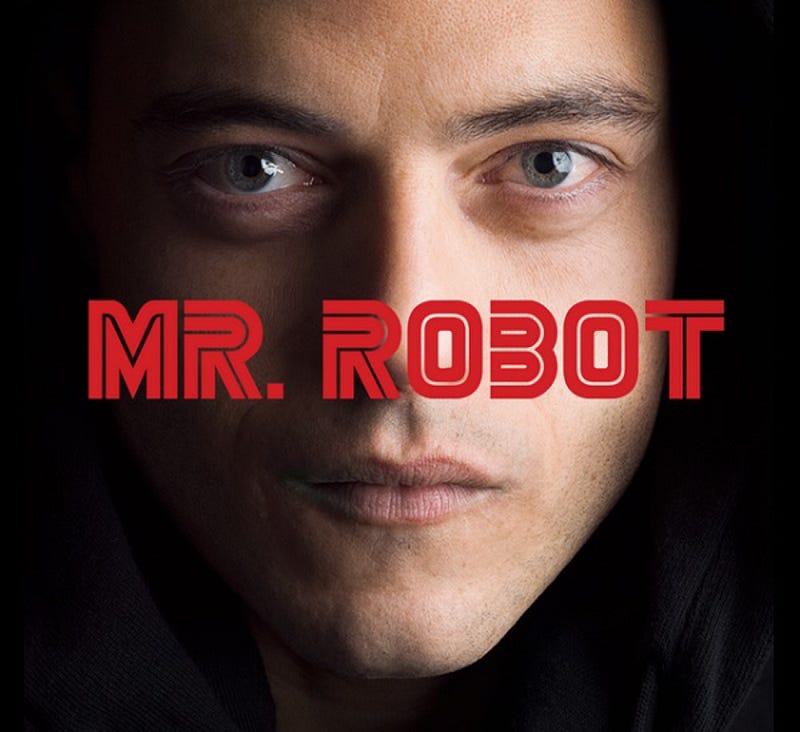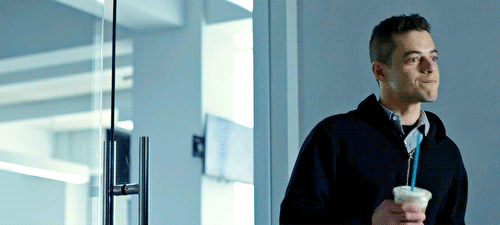Last summer I listened to Grantland’s (R.I.P.) “Hollywood Prospective” podcast and the hosts, Chris Ryan and Andy Greenwald, seemed more excited than normal about a new show called Mr. Robot. They were declaring it the show of the summer and since I trusted most suggestions in pop culture from the Grantland family — a website that had introduced me to some of my favorites True Detective and Narcos — I considered giving the show a try. There was only one problem in this instance…the show was on USA. Yes that USA. The network of blue skies and pun-heavy show titles such as Suits, Burn Notice, and Blue Collar (only two of those titles are actual shows). I hadn’t watched the USA network regularly since summer of ‘95 when I could watch reruns of American Gladiator. But after hearing Chris and Andy rave over the premise, I decided to give it a try. If you haven’t watched the show you are missing out. It’s a dark drama about a hacker that uses technology in some interesting ways and after watching the first season, I have no clue where the story will go next. (Season 2 is expected to premiere in June/July of 2016 so laggards you all have time to binge and catch up!)
Anyway, today’s post is not supposed to be fan fiction or an opportunity for me to share my theories on who the protagonist/anti-hero is for the show Mr. Robot. The reason I even bring up the show is because I recently finished Clive Thompson’s book entitled Smarter Than You Think. The book presents balanced takes on technology’s impact on the human race from the learning, personal, and professional perspectives. However, there is a disconnect when looking at popular artistic portrayals of the technologically advanced future in movies. Popular interpretations such as Ex Machina and The Matrix convey this point. When we look at movies or read novels about the future, we see worlds where technology has ultimately been the human race’s downfall. But as Thompson proves throughout his book technology is not completely dark nor as bright skies as a USA drama as many tech enthusiasts may proclaim.
Thompson suggests that the answer to the question ‘Is technology good or bad’ is…it depends and that generally human capabilities coupled with computing power allows humanity to accomplish more and discover more. If you are interested in exploring how technology throughout history has improved the way humans think and work, this is the book for you. The author utilizes statistics, studies, and anecdotes to prove how tech is consistently improving the day to day actions of humans’ lives. My favorite two quotes from the book (see below) touch on the key reason technology is essential to humanity — it stimulates creative solutions and more curiosity.
“Understanding how to use new tools for thought requires not just a critical eye, but curiosity and experimentation.”
“How should you respond when you get powerful new tools for finding answers?…Think of harder questions.”
Use these awesome tools today to ask questions that will provoke thought for tomorrow.
Earnest Sweat is a Startup Adviser and Business Ops professional for various accelerators. Sweat specializes in sourcing, managing and mentoring startups within the fin tech, ed tech, and real estate tech sectors. If you have any questions, comments or requests please connect with Earnest throughLinkedIn, Twitter, or AngelList.
If you liked what you read please ☞ Please tap or click “♥︎” to help to promote this piece to others.





